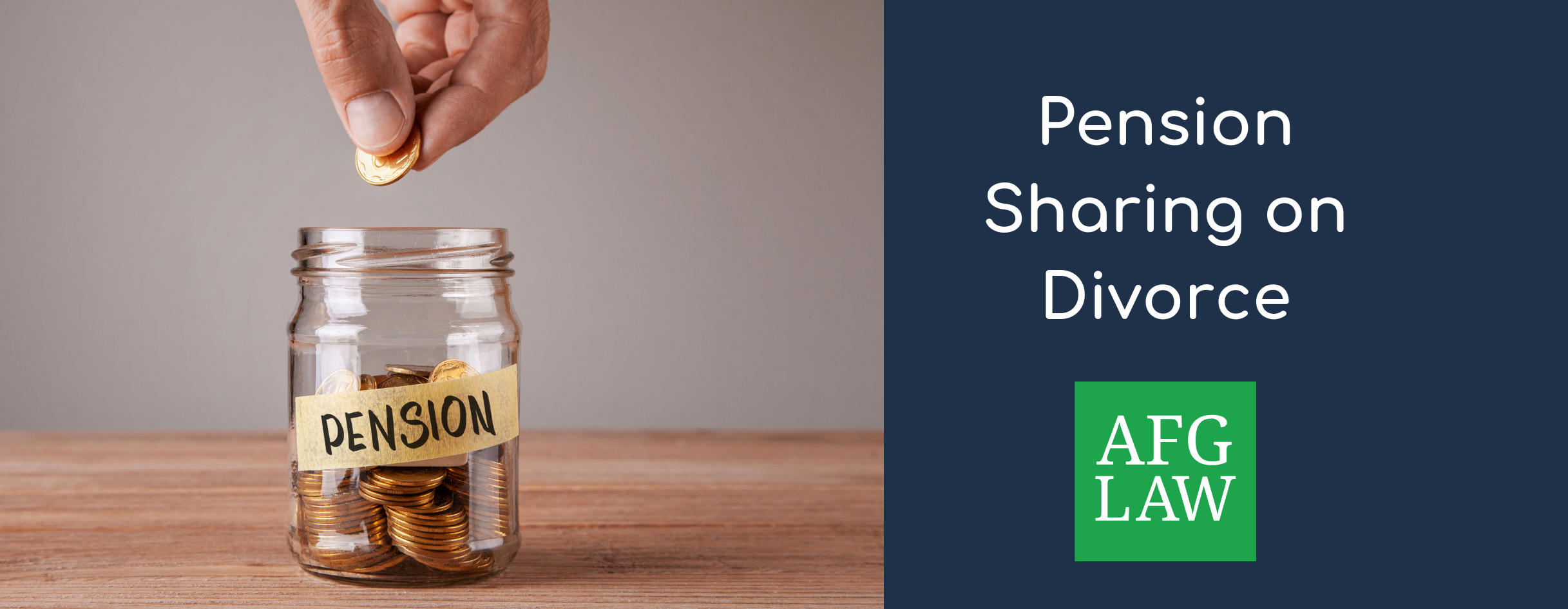Pensions are often the second largest asset a couple will have beyond their home. This means they may be a core point of stress and concern when it comes to the divorce process.
At AFG Law, our expert, compassionate divorce solicitors can guide you through this complicated area of law and ensure you get the best possible outcome for your future.
In the below article, we will cover the three options when it comes to pension sharing on divorce to help you understand the positives and drawbacks of each.
How is the value of a pension worked out?
One of the first steps taken by a divorce solicitor will be to obtain the Cash Equivalent Transfer Value, otherwise known as a CETV, of each pension held. This is because it can take time for the different partners’ pensions schemes to provide a CETV. A CETV is then used to provide a cash equivalent value of the benefits that would be received from a defined pension to help clarify what the pension is worth compared to the couple’s liquid assets.
There are three options when it comes to pension sharing on divorce:
Pension offsetting
With pension offsetting, the value of any pension is offset against any other assets. In practice, this could mean that one partner keeps their pension and, in return for this, the other partner might get a larger share of the family home.
Pension offsetting is a popular option for splitting assets on divorce as it keeps things simple and the order is not affected by remarriage or death.
One drawback of this option is that it can be difficult to value some assets as their worth can change over time. In addition, it can mean that following the divorce, the partner that has kept the pension may have very little liquid capital available. The benefit of liquid capital is that assets can be readily exchanged for cash, compared to ‘illiquid’ assets which are harder to access.
Pension sharing
In pension sharing, an order is made that an agreed percentage of a pension should be transferred to the other partner. The court will issue a Pension Sharing Order which states how much of the pension the ex-partner is entitled to receive. The pension is then shared between the divorcing couple, being divided up with a portion transferred to the other partner. This person will then hold a pension portion in their own name within a pension scheme.
The key benefit of pension sharing is that each party can decide independently what to do with their share of the pension. It both achieves a clean break and helps to make sure both parties have a pension provision when they retire. Remarriage and death will also not affect this order.
There are two key drawbacks of pension sharing. Firstly, there are usually fees to pay to the pensions provider to make the split in accounts. Secondly, it can be difficult to split some pensions into two and there may then be some tax implications for high earners regarding their lifetime allowance as the value of the pension provision will be increased.
Pension attachment
When a pension attachment order is made, a portion of the pension lump sum is paid to the other partner directly by the pension provider.
The difference between this and pension sharing is that a pension attachment order applies to the value of the pension at the date of retirement, not at the date of the divorce. This option is less frequently opted for than pension sharing for three reasons.
- The receiving spouse would lose benefits on remarriage.
- There isn’t the same clean break that many divorcing couples wish to achieve.
- There is less certainty for the spouse receiving a port of the pension as they must wait for their former partner to retire.
How AFG Law can help with pension sharing on divorce
If you are in the process of separating and wishing to get divorced, and there are financial issues to be resolved, it is vital that you seek legal advice as soon as possible. There are a range of services related to divorce which AFG can help with. The team can be as involved as you need them to be; we will always try to save you money and get you the best outcome possible.
If you have any further questions regarding pension sharing on divorce or if you require legal advice on any of the information listed above, please call 01204 377600 to speak with AFG Law’s expert family team who can support you in all aspects of family law. Alternatively, you can email one of the team members at familysolicitor@afglaw.co.uk.
AFG Law have multiple offices with family solicitors in Manchester, including Stockport, Bolton and Bury. We can also assist clients remotely.
